Finally, we’re at the end of my 2020 wrap-up, it feels like I’ve been at this for a month, not just 11 days. Like I’ve said previously, my intention was to be done three or four days ago, but oh, well.
In a real sense, this was a challenging list to come up with, but the first 7 jumped to mind instantly, even back in December when I started to think about what might show up. It was those last three that I had to labor over—there were so many good candidates (see the list at the end of this post for the six-way tie for 11th place).
Once again, I’ll note that I limit my lists to things I read for the first time (so the nine Robert B. Parker books I re-read last year didn’t make up most of this list). I’d be willing to guarantee anyone reading this page will enjoy at least 6 of these (which six will vary from reader to reader). I’m tempted to say that all the listed books are guaranteed for everyone, but people’s tastes are too varied, so I’ll hedge my bet. Try these, and you’ll be glad you did.
(in alphabetical order by author)
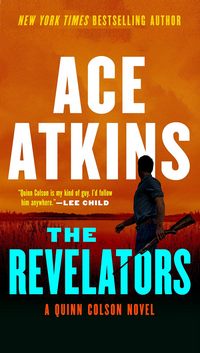 The Revelators
The Revelators
by Ace Atkins
My original post
Here, in book 10, Ace Atkins wraps up storylines he’s been building up for ages, characters move on (some are even still alive when that happens), and what comes next for Quinn Colson and his community is anybody’s guess (although, I’m pretty sure there’ll be a white, corrupt politician behind it, because…well, it’s Tibbehah County). A dynamite novel.


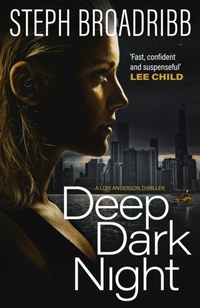 Deep Dark Night
Deep Dark Night
My original post
Lori and JT are finally pressured to do the shady work for the FBI Agent that’s been looming over her head forever, and it goes horribly, horribly wrong. Which is a treat for the reader. You’ve got the JT, Lori, and a whole bunch of unsavory people trapped on the top floor of a Chicago highrise, and the thrills start from there. Strong character development in the middle of some of the tensest action you can imagine. Great ride.


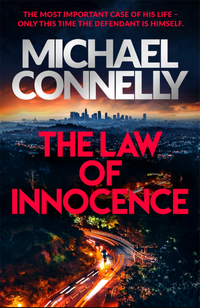 The Law of Innocence
The Law of Innocence
My original post
I was slightly afraid of that when I read the blurb for this—did we really need two books from Connelly in 2020 where the protagonist is suspected of a murder that there’s no chance at all that he committed? By the beginning of Chapter Two, any trepidation had vanished. By the end, this may be my favorite Lincoln Lawyer book yet. The courtroom action was fantastic. I absolutely loved it.


 The Curator
The Curator
by M. W. Craven
My original post
What a great hook. What a fantastic series of twists. What a wonderful concept for a killer and modus operandi. Washington Poe and Tilly Bradshaw are a couple of my favorite characters and they got to shine here. I just want to rave and rave and rave about this book, but I have things to do, so I’d better move on.


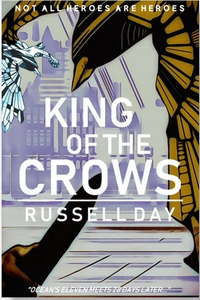 King of the Crows
King of the Crows
by Russell Day
My original post
There’s no way I can sum up my appreciation for this book in this post. Set in a world recovering from a pandemic, there’s a straightforward crime story at the heart of this novel—it’s just surrounded by so many layers, that you can miss it—there’s the disease, there’s the horrible social and political context (both mid- and post-Outbreak), there’s what the characters are going through otherwise—and the whole thing is drenched in social commentary about 2020 society, e.g., sexism, economics, medical care. Yeah, it was bad timing that this book came out in 2020 when the last thing that many people want to read is a novel about a disease that’s out of control. But this had been in the works for months before anyone had heard of COVID-19. I’ve wondered what I’d think of this book if I’d read it last Fall. I’d still like it, I’d still be impressed by it—but I don’t know if it would resonate with me the same way. There’s almost nothing about Gondii that’s comparable to COVID-19. But the way that people and governments respond—well, that’s pretty different, too. but if you can’t see what’s going on around us reflected in this novel? You’re not paying attention. That Day appears so prescient says something about his skill and observation (and a lot about Western culture, too).


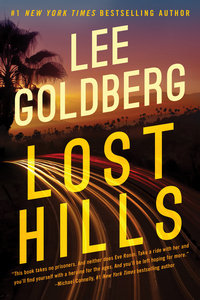 Lost Hills
Lost Hills
by Lee Goldberg
My original post
A young detective takes advantage of Social Media stardom to get herself a promotion she’s not quite ready for. But she’s determined to get there. She has to overcome her own lack of experience and a department that resents her. Eve Ronin’s first homicide case starts with a grizzly scene and the apparent murder of a woman, her two children, and a dog. Soon, she’s finding herself racing with an out-of-control wildfire that’s about to wipe out any evidence related to the case and the killer’s last victim. A great start to what promises to be a fun series.


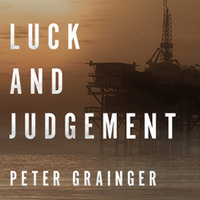 Luck and Judgement
Luck and Judgement
Peter Grainger, Gildart Jackson (Narrator)
My original post
DC Smith and his trainee are brought along with some other government investigators to look into a missing person/death on an oil rig. Smith’s the only one who doesn’t think it’s an accident. He begins to investigate the death as a murder and uncovers a lot more than he bargained for. Humor, heart, and humanity are the bedrock of this series and all of them shine forth in this procedural.


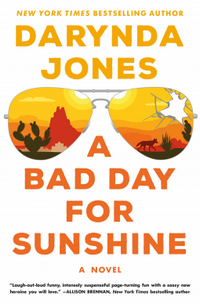 A Bad Day for Sunshine
A Bad Day for Sunshine
My original post
This is pure, escapist fun. Think Gilmore Girls mixed with Veronica Mars. A single mom is a new sheriff of a quirky little New Mexico town, with a spunky daughter. There’s a kidnapping, an escaped convict, a missing deputy, and cursed cupcakes. Great dialogue, witty repartee, a mother-daughter relationship that will earn Jones many fans. This is as much fun as you can pack into a police procedural without making it a comedy, but still full of grim, grisly, depravity and darkness. It’s a nice serving of literary comfort food. There’s a freshness to this voice that I just loved, but my appreciation for this book (and the series it launches) goes deeper.


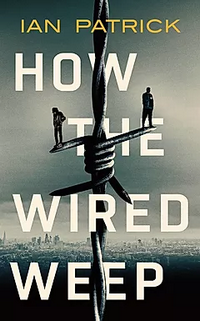 How the Wired Weep
How the Wired Weep
by Ian Patrick
My original post
There are two protagonists here—one is a small-time criminal, the other is a London Detective Sergeant who recruits and handles informants—excuse me, Covert Human Intelligence Sources. The criminal is fresh out of prison and is being used to get information on an up-and-coming local gang leader. There’s plenty of moral ambiguity to go around here, which is probably pretty realistic for this line of work (on both sides of the law). Patrick gives a more intimate, more powerful novel than he has with his Sam Batford series with this fascinating look into a side of policing most novels don’t.


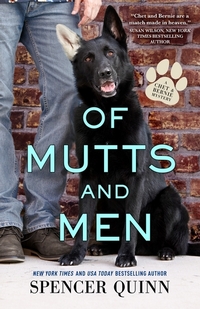 Of Mutts and Men
Of Mutts and Men
My original post
I’ve been a fan of this series since chapter 3 or so of the first book. Here in the tenth novel, Quinn is better than ever. There are some really strong emotional moments in the novel, some character growth (not in Chet, our animal narrator, never fear), and a mystery even more complex readers are used to from Chet and Bernie. Still, this is a series about a down-on-his-luck PI and his canine partner—a mix of goofy fun and solid PI fiction, fun, fun, stuff.


Books that almost made the list—and did in various drafts (links to my original posts): The Inheritance Games by Jennifer Lynn Barnes; The Finders by Jeffrey B. Burton; The Ninja Daughter by Tori Eldridge; Rattlesnake Rodeo by Nick Kowalski; Far from the Tree by Rob Parker, Warren Brown (Narrator); and Light it Up by Nick Petrie![]()



